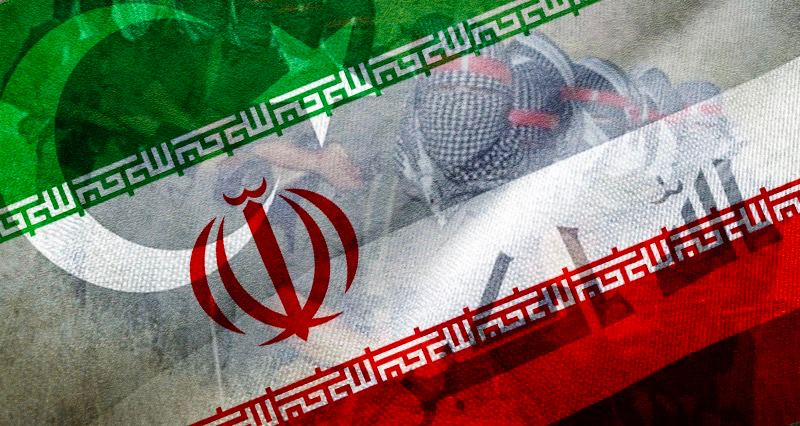By Mesoud Sadrmohammadi
As reported in Turkish and Iraqi media, Türkiye intends to launch a large-scale operation against the PKK terrorist group’s positions in Iraq in the very near future. The goal of these extensive operations, the specifics of which are still undetermined, is to eradicate terrorism at its source by eliminating terrorist threats against Türkiye. Following a visit by a high-ranking Turkish delegation including the Foreign Minister, Defense Minister, and Head of Türkiye’s Security Organization, Türkiye and Iraq issued a joint security statement that for the first time referred to the PKK as an illegal group whose actions against Türkiye from Iraqi soil violates Iraqi laws. This statement demonstrates coordination between Iraqi and Turkish authorities, implicitly signifying their support and consent to Türkiye’s operation on Iraqi soil.
Meanwhile, given Iraq’s position in Iranian diplomacy and the potential impact of these operations on the future situation in Syria, Iran’s stance on this matter is significant.
So far, no Iranian official has expressed any reaction to these operations, as Tehran appears unlikely to respond in a clear and formal manner until the operation kicks off. If Baghdad and Ankara have reached an official agreement and coordinated these operations, it is natural for Iran to respect their official positions. Regardless of Iran’s stance, what are the current analyses on this operation?
Three reasons for Iran’s optimism towards Türkiye’s operation in Iraq
Some analysts believe that by strengthening all anti-terrorism efforts in the region, Türkiye’s operations against the PKK will naturally benefit Iran as well, and thus should be supported. The Iranian branch of the PKK, known as PJAK, has been a major destabilizing factor in western Iran for three decades, claiming the lives of numerous Iranian military personnel and civilians because of its terrorist activities. Naturally, any confrontation with this group that results in a blow for it would benefit Iran.
PJAK and other terrorist groups present in Iraq’s Kurdistan region have demonstrated during the unrest of the previous year that they will continue to engage in terrorist activities against Iran if given the opportunity.
On the other hand, some Iranian experts believe that, while the Basra-to-Türkiye transit project is a competitor to Iran’s transit route, strengthening cooperation between Türkiye and Iraq would benefit Iran in the long run by undermining Israel’s interests, as Israel also seeks to establish a corridor with India.
From this viewpoint, Türkiye’s future operations in Iraq are an effort to boost Iraq’s security and accelerate the effectiveness of the 1200-kilometer “Development Road” project.
Furthermore, considering the reactions sparked several months ago by Iran’s missile strike on Mossad positions in Iraq’s Kurdistan region, Iran is likely to welcome Türkiye’s increased attacks in Iraq. This way, Iran would not be the only active country in Iraq, and Türkiye’s active military presence would validate Iran’s security and military concerns.
Negative assessments of Türkiye’s operations in Iraq
However, in addition to these advantages and supportive views of Türkiye’s potential operation in Iraq, there are also negative and critical perspectives in Iran.
Some analysts, based on their habitual threat perception of Türkiye’s activities in the Middle East, see these operations not as Ankara’s efforts to eliminate terrorist threats against itself but as its attempt to increase its geopolitical influence in the region, which they believe contradicts Iran’s strategic interests as a regional rival.
According to this group, Türkiye has the ability to eliminate the PKK headquarters using drone operations, rendering the need for an extensive ground operation in Iraq unnecessary. As a result, it is possible to argue that Türkiye’s operations are serving other purposes.
Critically, some experts believe that if Türkiye genuinely wants to eliminate terrorist threats against itself, it should launch operations against YPG positions in eastern Euphrates, northern Syria, rather than Iraq. According to these critics, the main security threat to Türkiye is in eastern Euphrates and northeastern Syria, where the Syrian branch of the PKK is establishing a governmental structure with the support of the US and NATO, fundamentally contradicting Türkiye’s strategic interests and territorial integrity. Moreover, the majority of PKK terrorists are trained in Syria, rather than Iraq, which has helped to strengthen PKK activities in Türkiye. As a result, Türkiye should prioritize operations in Syria.
According to these critics, considering Türkiye’s increasingly Western-oriented foreign policy approach, it is not surprising that Türkiye, by increasing its military presence in Iraq, would act as a barrier to Iran’s military responses to Israel and the United States in the event of a military attack.

















Leave a Reply